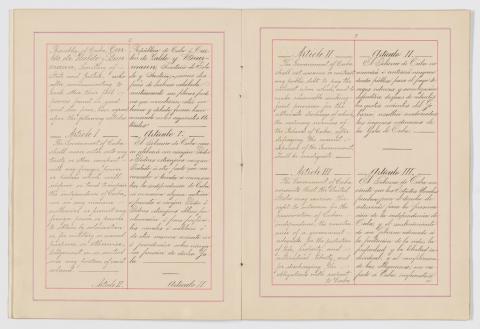
Treaty between the United States and the Republic of Cuba Embodying the Provisions Defining Their Future Relations as Contained in the Act of Congress Approved March 2, 1901
In April 1898, some U.S. politicians, wary that the war against Spain might become a vehicle for expansionism, secured the Teller Amendment. This was a commitment from the U.S. government that it would not pursue the annexation of Cuba after the war, respecting its will for independence. Three years into the U.S. military government occupation in Cuba, U.S. Secretary of War Elihu Root devised the Platt Amendment to retain influence on the island.
Presented to Congress by Senator Orville H. Platt, the amendment gave the United States the right to intervene in Cuban affairs. It also secured for the U.S. the ability to lease lands in Cuba for coaling and naval stations. Although vehemently protested by Cubans, the Platt Amendment was presented to the Cuban constitutional convention as a condition for the end of the U.S. military occupation.